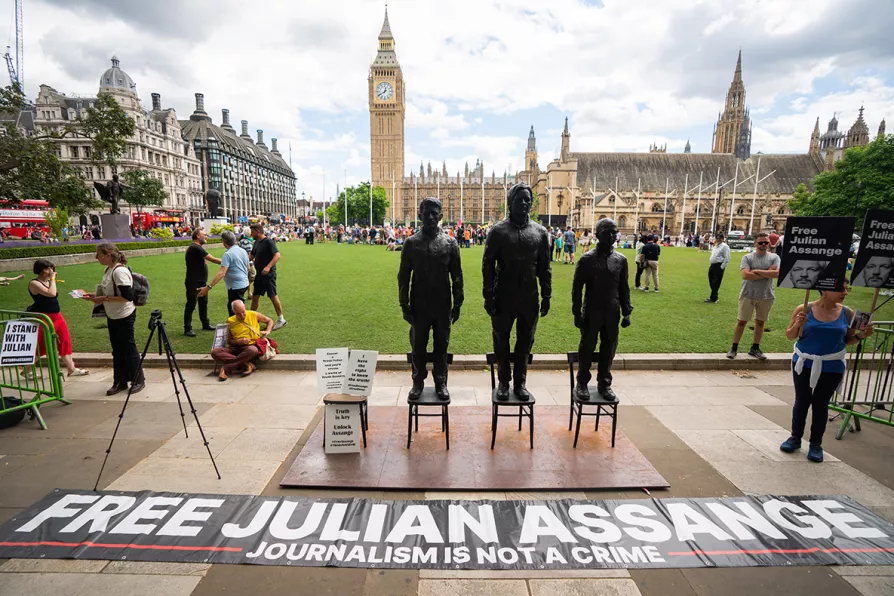LUKE FLETCHER outlines Plaid Cymru bold plans for wide-ranging policy consultations with trade unions in Wales

 A sculpture called Anything To Say, which features life-sized bronze figures of whistleblowers (left-right) Edward Snowden, Julian Assange and Chelsea Manning, each standing on their own individual chair, is unveiled at Parliament Square, London, June 24, 2023
A sculpture called Anything To Say, which features life-sized bronze figures of whistleblowers (left-right) Edward Snowden, Julian Assange and Chelsea Manning, each standing on their own individual chair, is unveiled at Parliament Square, London, June 24, 2023
“Give me the freedom to think, to speak and to argue freely, according to conscience above all other liberties” — George Loveless, leader of the Tolpuddle Martyrs,1834.
“One of the best ways to achieve justice is to expose injustice” Julian Assange, imprisoned on remand in Belmarsh for over four years.
THE Tolpuddle Martyrs were trade unionists transported to Australia in 1834 for seeking higher wages. Julian Assange is an Australian journalist who faces imminent extradition from Britain to the US for publishing the truth about US war crimes in Iraq and Afghanistan. At first sight, the two cases seem completely different.

ANDY HEDGECOCK, MARIA DUARTE and ANGUS REID review The Six Billion Dollar Man, Avatar: Fire and Ash, Goodbye June, and Super Elfkins

Former judge ANSELM ELDERGILL examines the details and controversy of Lucy Letby’s trial and appeal in the context of famous historical wrongful convictions that prove both the justice system and legal activists make errors

ANSELM ELDERGILL examines the legal case behind this weekend’s Tolpuddle Martyrs’ Festival and the lessons for today

As the labour movement meets to remember the Tolpuddle Martyrs, MICK WHELAN, general secretary of train drivers’ union Aslef, says it’s an appropriate moment to remind the Labour government to listen to the trade unions a little more










